PRESIDENT’S COLUMN
The Mental Health Challenge or Relieving Anxiety and Depression for Students and Faculty
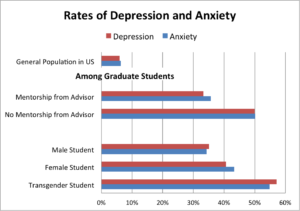
By David Kaplan
I remember stress from college, graduate school and as a professor. High levels of tension were considered a badge of honor—some sort of endurance test—but these types of “masculinist” environments can leave some people unnecessarily wounded… Stress begins early, as high school students suffer from “achievement pressure,” overcoaching, and a need to load college applications with all manner of activities and plaudits… Breaking the culture of silence is critical.
Continue Reading.
Changes in our Annual Meeting: Fees, Structure and an Unfortunate Oversight
In this brief letter, AAG President David Kaplan describes some changes to the AAG Annual Meeting registration fees and meeting structure. He also addresses the unfortunate overlap of the 2020 meeting with Passover and Good Friday.
Read the open letter.
ANNUAL MEETING
2020 AAG Annual Meeting Themes Announced

Since the AAG first introduced themes for the annual meeting, they have been used to emphasize a particular set of interests.Three themes have been identified for #aagDENVER that speak to the significance of our meeting’s location in Denver, the political era we find ourselves in, and the need to foster a larger and more inclusive geographical community. The 2020 Themes are: The Changing North American Continent, Ethnonationalism and Exclusion around the World, and Expanding the Community of Geography. If you find that your session, poster, or paper corresponds with a theme, please consider adding it to the lineup for our 2020 AAG meeting in Denver.
Learn more about the #aagDENVER themes.
Throwback to the 2005 AAG Annual Meeting
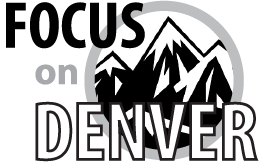 Did you know, the last time Denver served as a host site for the AAG Annual Meeting was in 2005? Though there has been much change in the area throughout the past 14 years, take a look back at what the Mile High City was like in 2005 with Focus on Denver and the Rocky Mountain West articles from our newsletter archive. Learn about the historical growth of the city as well as the more recent economic redevelopment and experience the metropolis for yourself in April!
Did you know, the last time Denver served as a host site for the AAG Annual Meeting was in 2005? Though there has been much change in the area throughout the past 14 years, take a look back at what the Mile High City was like in 2005 with Focus on Denver and the Rocky Mountain West articles from our newsletter archive. Learn about the historical growth of the city as well as the more recent economic redevelopment and experience the metropolis for yourself in April!
Read past newsletter articles.
Share Your Favorite Denver Location with Fellow AAG Members
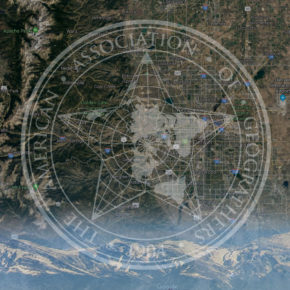 As we prepare for #aagDENVER, we need your help to find the best places for AAG Annual Meeting attendees to visit during their trip to the Mile High City. If you have a recommendation for a spot in Denver, please submit it to the AAG. AAG staff will review, select, and curate items to post on one or more AAG communication platforms as we get ready for the meeting.
As we prepare for #aagDENVER, we need your help to find the best places for AAG Annual Meeting attendees to visit during their trip to the Mile High City. If you have a recommendation for a spot in Denver, please submit it to the AAG. AAG staff will review, select, and curate items to post on one or more AAG communication platforms as we get ready for the meeting.
Submit your recommendations.
Register today for the 2020 AAG Annual Meeting
Registration is now open for the 2020 AAG Annual Meeting to be held April 6-10 in Denver, Colorado. The Early Bird registration rates offer the lowest rates across all levels of meeting participation. But hurry, Early Bird rates expire on October 9th!
PUBLICATIONS
NEW Annals Alert: Articles with topics ranging from shrinking cities to air pollution disparities to effects of fracking on bird habitats
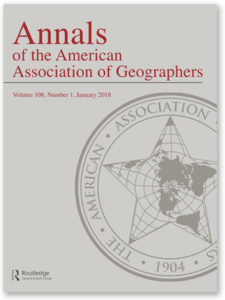 The most recent issue of the Annals of the AAG has been published online (Volume 109, Issue 5, September 2019) with 18 new research articles on contemporary geographic research. Topics in this issue include neighborhood planning, waste-to-energy, drinking water insecurity, socioterritorial movements, choropleth mapping, sand mining, commodification, commuting distance, and local volcanic knowledge. Locational areas of interest include northern India, northern Alaska, North Dakota, northwest China, and northeast Brazil. Authors are from a variety of research institutions including State University of New York at Buffalo, University of California, Davis, University of Utah, and Cardiff University.
The most recent issue of the Annals of the AAG has been published online (Volume 109, Issue 5, September 2019) with 18 new research articles on contemporary geographic research. Topics in this issue include neighborhood planning, waste-to-energy, drinking water insecurity, socioterritorial movements, choropleth mapping, sand mining, commodification, commuting distance, and local volcanic knowledge. Locational areas of interest include northern India, northern Alaska, North Dakota, northwest China, and northeast Brazil. Authors are from a variety of research institutions including State University of New York at Buffalo, University of California, Davis, University of Utah, and Cardiff University.
All AAG members have full online access to all issues of the Annals through the Members Only page. Each issue, the Editors choose one article to make freely available. In this issue you can read Urban Geocryology: Mapping Urban–Rural Contrasts in Active-Layer Thickness, Barrow Peninsula, Northern Alaska by Anna E. Klene and Frederick E. Nelson for free for the next two months.
Questions about the Annals? Contact annals [at] aag [dot] org.
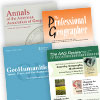 In addition to the most recently published journal, read the latest issue of the other AAG journals online:
In addition to the most recently published journal, read the latest issue of the other AAG journals online:
• Annals of the American Association of Geographers
• The Professional Geographer
• GeoHumanities
• The AAG Review of Books
New Books in Geography — July Available
 Read the latest titles in geography and related disciplines as found on the New Books in Geography list. Some of these books will be reviewed in The AAG Review of Books. The editors of The AAG Review of Books are happy to receive suggestions for potential reviews and potential reviewers. Reviews are commissioned by the editors, based on the appropriateness and qualifications of the reviewer, observing the usual avoidances of conflict of interest. Persons wishing to volunteer their reviewing services should have the requisite qualifications and demonstrable prior knowledge and engagement with the subject area, preferably through publications. Please contact the editors at aagrb [at] lsu [dot] edu.
Read the latest titles in geography and related disciplines as found on the New Books in Geography list. Some of these books will be reviewed in The AAG Review of Books. The editors of The AAG Review of Books are happy to receive suggestions for potential reviews and potential reviewers. Reviews are commissioned by the editors, based on the appropriateness and qualifications of the reviewer, observing the usual avoidances of conflict of interest. Persons wishing to volunteer their reviewing services should have the requisite qualifications and demonstrable prior knowledge and engagement with the subject area, preferably through publications. Please contact the editors at aagrb [at] lsu [dot] edu.
Browse the full list of new books.
New issue of African Geographical Review Published
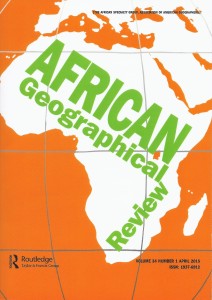 The latest issue of the journal of the Africa Specialty Group of the AAG, the African Geographical Review, has recently been published. Volume 38, Issue 3 (September 2019) is available online for subscribers and members of the Africa Specialty Group. Each issue, the Editors choose one article to make freely available. In this issue you can read Introduction to the special issue on new geographies of South(ern) Africa by Pádraig Carmody & Christian M. Rogerson for free.
The latest issue of the journal of the Africa Specialty Group of the AAG, the African Geographical Review, has recently been published. Volume 38, Issue 3 (September 2019) is available online for subscribers and members of the Africa Specialty Group. Each issue, the Editors choose one article to make freely available. In this issue you can read Introduction to the special issue on new geographies of South(ern) Africa by Pádraig Carmody & Christian M. Rogerson for free.
See more about the journal.
ASSOCIATION NEWS
Seeking Professional Geographers for Career Profiles
The AAG is conducting a new series of interviews with professional geographers to highlight the important work geographers perform in their careers. Once completed, the interviews will be featured on the AAG’s website as part of our monthly Profiles of Professional Geographers series. For the profiles, we seek practicing geographers representing all sectors of the workforce, including those working in private business, government (state, regional, local and federal), nonprofit/NGOs, and education (K-12, community colleges, and higher ed) to showcase the broad range of career opportunities available to geographers.
Share your experience.
Volunteer to Serve as a Career Mentor at the 2020 AAG Annual Meeting

The AAG seeks panelists, career mentors, workshop leaders and session organizers for careers and professional development activities at the 2020 AAG Annual Meeting in Denver, CO. Individuals representing a broad range of employment sectors, organizations, academic and professional backgrounds, and racial/ethnic/gender perspectives are encouraged to apply. If interested, email careers [at] aag [dot] org, specifying topic(s) and activity(s) of interest, and attach a current C.V. or resume. For best consideration, please submit your information by November 9, 2019.
Get involved with the AAG Jobs and Careers Center.
Visiting Geographical Scientist Program Accepting Applications for 2019-2020

The VGSP, which sponsors visits by prominent geographers to small departments or institutions with limited resources, is accepting applications for the 2019-2020 academic year. The purpose of this program is to stimulate interest in geography among students, faculty members, and administrative officers. Departments must make their own travel arrangements with speakers, however a list of pre-approved speakers is available on the website. VGSP is funded by Gamma Theta Upsilon (GTU), the international honors society for geographers. Questions and complete applications may be directed to Mark Revell.
Apply to the VGSP for this school year.
POLICY CORNER
2020 Census Won’t Include Citizenship Question

As of July, it became official that the 2020 Census will not include a question on citizenship. The Supreme Court’s June decision that the Trump Administration hadn’t provided sufficient justification to include the question ran closely up against the early July print deadline, and the Census Bureau had to begin printing without it.
This is a significant win for geographers and the broader scientific community who rely on the integrity of decennial census data. It is a positive step toward an accurate population count in anticipation of Congressional redistricting and mapping in 2021. And its effects will help ensure fair distribution of public funds, including for K-12 education grants to low-income communities in need of federal aid.
Moving forward, it’s crucial that all U.S. residents participate in the count. There is speculation that controversy over the citizenship question did long term damage by causing lingering confusion among immigrant communities. The AAG will continue to follow this issue and to support the important mission of the Census Bureau as it works to ultimately deliver fair and accurate data.
In the News:
- A two-year budget agreement was passed in early August, but much work remains on passing all appropriations bills to avert a government shutdown on October 1st with the majority of unfinished spending bills waiting to be considered by the Senate.
- Both the House and Senate will reconvene from their August recess after Labor Day and start quickly on work to fund the government past September 30th.
MEMBER NEWS
Profiles of Professional Geographers
 Dr. Camelia Kantor, Vice President of Academic Affairs at the United States Geospatial Intelligence Foundation (USGIF), knew her career was the one for her as soon as she saw the job ad and her geography training prepared her for it. Geographers have a broad knowledge base and often bridge the gap between different disciplines. Read up on Dr. Kantor’s career to learn more about the new field of geospatial intelligence and how careers in GEOINT are expanding.
Dr. Camelia Kantor, Vice President of Academic Affairs at the United States Geospatial Intelligence Foundation (USGIF), knew her career was the one for her as soon as she saw the job ad and her geography training prepared her for it. Geographers have a broad knowledge base and often bridge the gap between different disciplines. Read up on Dr. Kantor’s career to learn more about the new field of geospatial intelligence and how careers in GEOINT are expanding.
Learn more about Geography Careers.
September Member Updates
The latest news about AAG Members.
Indiana State University Professor Qihao Weng has been awarded a fellowship to conduct research in Japan as part of the Japan Society for the Promotion of Science (JSPS). Weng is one of three researchers selected to participate in the JSPS Short-term S program this year.
Learn more.
Three geographers continue to work for the Geography and Spatial Sciences (GSS) Program at the National Science Foundation (NSF): Antoinette WinklerPrins, has been appointed Deputy Division Director for the Division of Behavioral and Cognitive Sciences (BCS) in the Directorate for Social, Behavioral and Economic Sciences (SBE), the Directorate and Division that includes GSS. Scott Freundschuh returns to NSF as GSS Program Director. Jacqueline Vadjunec continues as GSS Program Director.
RESOURCES AND OPPORTUNITIES
AGI Webinar – Important Writing Skills for Careers in the Environmental Industry
 The American Geosciences Institute is offering the next webinar in the Technical Writing Skills for Geoscience Careers webinar series. This free 1-hour webinar, will be held on October 2nd at 1:00 PM EDT. Speakers will discuss skills that are developed during undergraduate or graduate academic training, types of written products that are developed by geoscientists in the environmental consulting industry, training and professional development opportunities for improving and expanding writing skills and advice for students on how to acquire the needed writing skills as they prepare for and pursue their career path.
The American Geosciences Institute is offering the next webinar in the Technical Writing Skills for Geoscience Careers webinar series. This free 1-hour webinar, will be held on October 2nd at 1:00 PM EDT. Speakers will discuss skills that are developed during undergraduate or graduate academic training, types of written products that are developed by geoscientists in the environmental consulting industry, training and professional development opportunities for improving and expanding writing skills and advice for students on how to acquire the needed writing skills as they prepare for and pursue their career path.
Save your spot for the webinar.
NCRGE Initiates Research Networks on Geography Education and Libraries, Powerful Geography, and the NAEP Geography Assessment
 The National Center for Research in Geography Education (NCRGE) has initiated three research networks supporting further implementation of the Road Map for 21st Century Geography Education project’s landmark report on geography education research. The three networks are: Geography Education and Libraries, Powerful Geography, and the National Assessment of Educational Progress Geography Assessment.
The National Center for Research in Geography Education (NCRGE) has initiated three research networks supporting further implementation of the Road Map for 21st Century Geography Education project’s landmark report on geography education research. The three networks are: Geography Education and Libraries, Powerful Geography, and the National Assessment of Educational Progress Geography Assessment.
Click here for more information.
EMU to host Mark Jefferson & Versailles Peace Conference Symposium
 The Department of Geography & Geology, History & Philosophy, and Political Science at Eastern Michigan University have organized a two day Symposium for October 17th & 18th, 2019, the “Professor Mark Jefferson and the Versailles Peace Conference,” in order to commemorate the 100th anniversary of the Versailles conference and celebrate the distinguished career of Mark Jefferson at EMU. Guest speakers at the symposium include geographers Jeremy Crampton (Newcastle) and Wesley Reisser (U.S. State Department & George Washington University) and WWI historian Jesse Kauffman (EMU).
The Department of Geography & Geology, History & Philosophy, and Political Science at Eastern Michigan University have organized a two day Symposium for October 17th & 18th, 2019, the “Professor Mark Jefferson and the Versailles Peace Conference,” in order to commemorate the 100th anniversary of the Versailles conference and celebrate the distinguished career of Mark Jefferson at EMU. Guest speakers at the symposium include geographers Jeremy Crampton (Newcastle) and Wesley Reisser (U.S. State Department & George Washington University) and WWI historian Jesse Kauffman (EMU).
Find out more about the symposium.
Help AAG Share Geography Career Materials to High Schools
As part of the American Association of Geographers’ ongoing efforts to inform students at earlier educational stages about opportunities in geography, the AAG has compiled geography career information packets that are available to mail to high school guidance counselors. The packets include materials about career opportunities and paths in geography, how to learn about the different college and university geography programs and degrees available, jobs and careers resources on the AAG website, and information on the GeoMentors program which can connect K-12 teachers with volunteers to assist with geospatial technology and provide career presentations.
Would you like a packet to be sent to schools in your area? Use the online form to provide contact information for counselors and teachers that you would like to receive a packet. If you have any questions, contact the AAG’s Director of Outreach and Engagement, Candice Luebbering.
Call for Posters – the National Council on Public History 2020 Annual Meeting
 Posters are currently being solicited for the 2020 Annual Meeting of the National Council on Public History to be held in Atlanta, Georgia. Poster abstracts will be considered for the program based on the persuasiveness of your abstract, the quality of your proposed visual presentation, and your project’s relation to major issues and questions in public history. Adherence to this year’s conference theme, “Threads of Change,” is encouraged, but not required. Abstracts are due by October 7, 2019.
Posters are currently being solicited for the 2020 Annual Meeting of the National Council on Public History to be held in Atlanta, Georgia. Poster abstracts will be considered for the program based on the persuasiveness of your abstract, the quality of your proposed visual presentation, and your project’s relation to major issues and questions in public history. Adherence to this year’s conference theme, “Threads of Change,” is encouraged, but not required. Abstracts are due by October 7, 2019.
Find out more about NCPH posters.
GEOGRAPHERS IN THE NEWS
EVENTS CALENDAR



 Did you know, the last time Denver served as a host site for the AAG Annual Meeting was in 2005? Though there has been much change in the area throughout the past 14 years, take a look back at what the Mile High City was like in 2005 with Focus on Denver and the Rocky Mountain West articles from our newsletter archive. Learn about the historical growth of the city as well as the more recent economic redevelopment and experience the metropolis for yourself in April!
Did you know, the last time Denver served as a host site for the AAG Annual Meeting was in 2005? Though there has been much change in the area throughout the past 14 years, take a look back at what the Mile High City was like in 2005 with Focus on Denver and the Rocky Mountain West articles from our newsletter archive. Learn about the historical growth of the city as well as the more recent economic redevelopment and experience the metropolis for yourself in April! As we prepare for #aagDENVER, we need your help to find the best places for AAG Annual Meeting attendees to visit during their trip to the Mile High City. If you have a recommendation for a spot in Denver, please submit it to the AAG. AAG staff will review, select, and curate items to post on one or more AAG communication platforms as we get ready for the meeting.
As we prepare for #aagDENVER, we need your help to find the best places for AAG Annual Meeting attendees to visit during their trip to the Mile High City. If you have a recommendation for a spot in Denver, please submit it to the AAG. AAG staff will review, select, and curate items to post on one or more AAG communication platforms as we get ready for the meeting. The most recent issue of the Annals of the AAG has been published online (
The most recent issue of the Annals of the AAG has been published online ( In addition to the most recently published journal, read the latest issue of the other AAG journals online:
In addition to the most recently published journal, read the latest issue of the other AAG journals online: Read the latest titles in geography and related disciplines as found on the New Books in Geography list. Some of these books will be reviewed in The AAG Review of Books. The editors of The AAG Review of Books are happy to receive suggestions for potential reviews and potential reviewers. Reviews are commissioned by the editors, based on the appropriateness and qualifications of the reviewer, observing the usual avoidances of conflict of interest. Persons wishing to volunteer their reviewing services should have the requisite qualifications and demonstrable prior knowledge and engagement with the subject area, preferably through publications. Please contact the editors at
Read the latest titles in geography and related disciplines as found on the New Books in Geography list. Some of these books will be reviewed in The AAG Review of Books. The editors of The AAG Review of Books are happy to receive suggestions for potential reviews and potential reviewers. Reviews are commissioned by the editors, based on the appropriateness and qualifications of the reviewer, observing the usual avoidances of conflict of interest. Persons wishing to volunteer their reviewing services should have the requisite qualifications and demonstrable prior knowledge and engagement with the subject area, preferably through publications. Please contact the editors at  The latest issue of the journal of the Africa Specialty Group of the AAG, the African Geographical Review, has recently been published. Volume 38, Issue 3 (September 2019) is available online for subscribers and members of the Africa Specialty Group. Each issue, the Editors choose one article to make freely available. In this issue you can read
The latest issue of the journal of the Africa Specialty Group of the AAG, the African Geographical Review, has recently been published. Volume 38, Issue 3 (September 2019) is available online for subscribers and members of the Africa Specialty Group. Each issue, the Editors choose one article to make freely available. In this issue you can read 


 Dr. Camelia Kantor, Vice President of Academic Affairs at the United States Geospatial Intelligence Foundation (USGIF), knew her career was the one for her as soon as she saw the job ad and her geography training prepared her for it. Geographers have a broad knowledge base and often bridge the gap between different disciplines. Read up on Dr. Kantor’s career to learn more about the new field of geospatial intelligence and how careers in GEOINT are expanding.
Dr. Camelia Kantor, Vice President of Academic Affairs at the United States Geospatial Intelligence Foundation (USGIF), knew her career was the one for her as soon as she saw the job ad and her geography training prepared her for it. Geographers have a broad knowledge base and often bridge the gap between different disciplines. Read up on Dr. Kantor’s career to learn more about the new field of geospatial intelligence and how careers in GEOINT are expanding. The American Geosciences Institute is offering the next webinar in the Technical Writing Skills for Geoscience Careers webinar series. This free 1-hour webinar, will be held on October 2nd at 1:00 PM EDT. Speakers will discuss skills that are developed during undergraduate or graduate academic training, types of written products that are developed by geoscientists in the environmental consulting industry, training and professional development opportunities for improving and expanding writing skills and advice for students on how to acquire the needed writing skills as they prepare for and pursue their career path.
The American Geosciences Institute is offering the next webinar in the Technical Writing Skills for Geoscience Careers webinar series. This free 1-hour webinar, will be held on October 2nd at 1:00 PM EDT. Speakers will discuss skills that are developed during undergraduate or graduate academic training, types of written products that are developed by geoscientists in the environmental consulting industry, training and professional development opportunities for improving and expanding writing skills and advice for students on how to acquire the needed writing skills as they prepare for and pursue their career path. The National Center for Research in Geography Education (NCRGE) has initiated three research networks supporting further implementation of the Road Map for 21st Century Geography Education project’s landmark report on geography education research. The three networks are: Geography Education and Libraries, Powerful Geography, and the National Assessment of Educational Progress Geography Assessment.
The National Center for Research in Geography Education (NCRGE) has initiated three research networks supporting further implementation of the Road Map for 21st Century Geography Education project’s landmark report on geography education research. The three networks are: Geography Education and Libraries, Powerful Geography, and the National Assessment of Educational Progress Geography Assessment. The Department of Geography & Geology, History & Philosophy, and Political Science at Eastern Michigan University have organized a two day Symposium for October 17th & 18th, 2019, the “Professor Mark Jefferson and the Versailles Peace Conference,” in order to commemorate the 100th anniversary of the Versailles conference and celebrate the distinguished career of Mark Jefferson at EMU. Guest speakers at the symposium include geographers Jeremy Crampton (Newcastle) and Wesley Reisser (U.S. State Department & George Washington University) and WWI historian Jesse Kauffman (EMU).
The Department of Geography & Geology, History & Philosophy, and Political Science at Eastern Michigan University have organized a two day Symposium for October 17th & 18th, 2019, the “Professor Mark Jefferson and the Versailles Peace Conference,” in order to commemorate the 100th anniversary of the Versailles conference and celebrate the distinguished career of Mark Jefferson at EMU. Guest speakers at the symposium include geographers Jeremy Crampton (Newcastle) and Wesley Reisser (U.S. State Department & George Washington University) and WWI historian Jesse Kauffman (EMU). Posters are currently being solicited for the 2020 Annual Meeting of the National Council on Public History to be held in Atlanta, Georgia. Poster abstracts will be considered for the program based on the persuasiveness of your abstract, the quality of your proposed visual presentation, and your project’s relation to major issues and questions in public history. Adherence to this year’s conference theme, “Threads of Change,” is encouraged, but not required. Abstracts are due by October 7, 2019.
Posters are currently being solicited for the 2020 Annual Meeting of the National Council on Public History to be held in Atlanta, Georgia. Poster abstracts will be considered for the program based on the persuasiveness of your abstract, the quality of your proposed visual presentation, and your project’s relation to major issues and questions in public history. Adherence to this year’s conference theme, “Threads of Change,” is encouraged, but not required. Abstracts are due by October 7, 2019.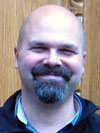 About 18 years ago, one of my Masters students calmly mentioned that she had been undergoing a tremendous amount of anxiety, and had seen a doctor about it. I was floored! This particular student exemplified “no drama.” She was motoring through her Master’s thesis research and writing while effectively assisting me on one of my research projects. To think that Carol (not her real name) was suffering this sort of debilitating stress was a revelation. And then she said, “But Dave, everybody I know is suffering.”
About 18 years ago, one of my Masters students calmly mentioned that she had been undergoing a tremendous amount of anxiety, and had seen a doctor about it. I was floored! This particular student exemplified “no drama.” She was motoring through her Master’s thesis research and writing while effectively assisting me on one of my research projects. To think that Carol (not her real name) was suffering this sort of debilitating stress was a revelation. And then she said, “But Dave, everybody I know is suffering.”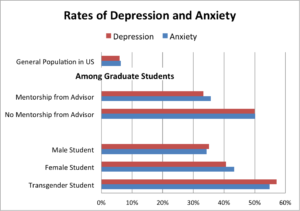

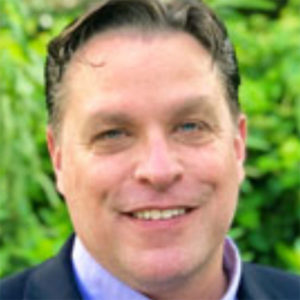 Gary is a broadly trained scientist with 20+ years of experience working on science-based solutions for people and the environment. He has published peer-review papers on a wide range of topics, including climate change, biogeography, seabirds, evolution, genetics, physiology, animal behavior, and conservation. Recently, he was recruited to become the Executive Director of the American Association of Geographers (AAG) – a vibrant, academic society based in Washington, DC. The AAG represents 9,000 members worldwide who work at the intersection of place, people, and the environment. Before this, Gary was Vice President and Chief Scientist at the National Audubon Society, where he directed Audubon’s wide-reaching scientific initiatives and studies. His team used 100 years of Audubon data to create the first comprehensive analysis of the effects of future climate change on 588 North American bird species. The release had over 2 billion media impressions in 1700 news outlets worldwide, including The New York Times, Los Angeles Times, Washington Post, National Geographic, Popular Mechanics, WIRED, NBC Nightly News, National Public Radio, and The Colbert Report. In 2000, he founded the Neotropical Grassland Conservancy to foster grassland research with grants and equipment. He completed a National Science Foundation Bioinformatics postdoc at the University of California, Berkeley, and he received his Ph.D. in Ecology and Evolutionary Biology from Cornell University.
Gary is a broadly trained scientist with 20+ years of experience working on science-based solutions for people and the environment. He has published peer-review papers on a wide range of topics, including climate change, biogeography, seabirds, evolution, genetics, physiology, animal behavior, and conservation. Recently, he was recruited to become the Executive Director of the American Association of Geographers (AAG) – a vibrant, academic society based in Washington, DC. The AAG represents 9,000 members worldwide who work at the intersection of place, people, and the environment. Before this, Gary was Vice President and Chief Scientist at the National Audubon Society, where he directed Audubon’s wide-reaching scientific initiatives and studies. His team used 100 years of Audubon data to create the first comprehensive analysis of the effects of future climate change on 588 North American bird species. The release had over 2 billion media impressions in 1700 news outlets worldwide, including The New York Times, Los Angeles Times, Washington Post, National Geographic, Popular Mechanics, WIRED, NBC Nightly News, National Public Radio, and The Colbert Report. In 2000, he founded the Neotropical Grassland Conservancy to foster grassland research with grants and equipment. He completed a National Science Foundation Bioinformatics postdoc at the University of California, Berkeley, and he received his Ph.D. in Ecology and Evolutionary Biology from Cornell University.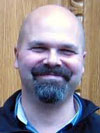 In this brief letter, I describe some changes to our registration fees and meeting structure. I would also like to address the unfortunate overlap of our spring meeting with Passover and Good Friday.
In this brief letter, I describe some changes to our registration fees and meeting structure. I would also like to address the unfortunate overlap of our spring meeting with Passover and Good Friday.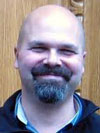 Each year the AAG president helps to identify a few themes for the AAG Annual Conference. While any topic is accepted for presentation at the annual meeting and participants are encouraged to develop their own special sessions, themes encompass a few specific points of interest for our Annual Conference and are used to organize a series of sessions, to focus discussion, and to highlight key events during the conference.
Each year the AAG president helps to identify a few themes for the AAG Annual Conference. While any topic is accepted for presentation at the annual meeting and participants are encouraged to develop their own special sessions, themes encompass a few specific points of interest for our Annual Conference and are used to organize a series of sessions, to focus discussion, and to highlight key events during the conference.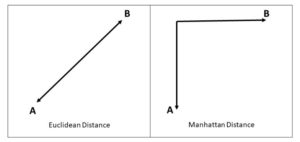 Savvy spatial thinkers recognized that the Euclidean distance calculation offered no insight into the actual distance one might travel along a road network to get to a destination, and they chose instead to employ the Manhattan distance calculation as a simulation. The method offered N–S or E–W movements in a stair-step pattern. While the resultant distance was likely more appropriate in most cases, there was no question that it was a substandard approach to calculating distance along a road network. Until recently, understanding access to care from the patient perspective has been a daunting technological challenge.
Savvy spatial thinkers recognized that the Euclidean distance calculation offered no insight into the actual distance one might travel along a road network to get to a destination, and they chose instead to employ the Manhattan distance calculation as a simulation. The method offered N–S or E–W movements in a stair-step pattern. While the resultant distance was likely more appropriate in most cases, there was no question that it was a substandard approach to calculating distance along a road network. Until recently, understanding access to care from the patient perspective has been a daunting technological challenge.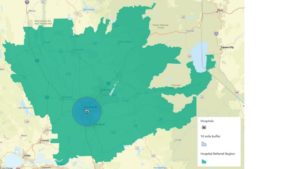 Healthcare administrators have also been interested in the issue of access. The concept has broad implications for planning services, managing populations, and preventing hospital readmissions. Initial GIS methods for access calculations from this perspective included the use of buffers or pre-defined service regions. It’s a very simple prospect to drop a point representing a hospital and create a 10-mile circular buffer to represent an area of general accessibility to the facility. From the hospital perspective, this method is roughly equivalent to the Euclidean distance calculation.
Healthcare administrators have also been interested in the issue of access. The concept has broad implications for planning services, managing populations, and preventing hospital readmissions. Initial GIS methods for access calculations from this perspective included the use of buffers or pre-defined service regions. It’s a very simple prospect to drop a point representing a hospital and create a 10-mile circular buffer to represent an area of general accessibility to the facility. From the hospital perspective, this method is roughly equivalent to the Euclidean distance calculation.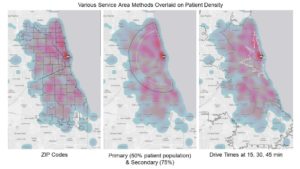 In 2000, Radke and Mu inspired the development of a method offering improved realism for accessibility called the two-step floating catchment area. The technique, derived from gravity models, attempts to capture several spatial variables and their interactions. The model requires the assessment of physician availability (supply) at locations (i.e., hospitals) as a ratio to their surrounding population (within a travel time threshold) and then sums those ratios around each residential (demand) location. Since its development, several enhancements have been made to the method that improve accuracy across different environments (like rural and urban). In 2011, a three-step floating catchment area technique was published that helped to minimize the overdemand estimation caused by the two-step method. The advance further refined the results, offering potential for better resource planning and identification of health professional shortage areas due to limited access.
In 2000, Radke and Mu inspired the development of a method offering improved realism for accessibility called the two-step floating catchment area. The technique, derived from gravity models, attempts to capture several spatial variables and their interactions. The model requires the assessment of physician availability (supply) at locations (i.e., hospitals) as a ratio to their surrounding population (within a travel time threshold) and then sums those ratios around each residential (demand) location. Since its development, several enhancements have been made to the method that improve accuracy across different environments (like rural and urban). In 2011, a three-step floating catchment area technique was published that helped to minimize the overdemand estimation caused by the two-step method. The advance further refined the results, offering potential for better resource planning and identification of health professional shortage areas due to limited access.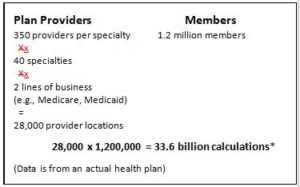 But what about going back to the patient perspective on the question of access to healthcare? There are now regulations in place that attempt to improve access to care by first understanding it from the patient’s perspective. I’m talking about network adequacy requirements, which refer to a health plan’s (including provider/plans) ability to deliver the benefits promised by providing reasonable access to a sufficient number of in-network primary care and specialty physicians, as well as all healthcare services included under the terms of the contract. Given the vast differences in topologies and road networks from one place to another, it makes sense that the regulation is based on driving times and driving distances together to formulate the most accurate picture possible. Depending on the regulatory agency, the standard for what is deemed an “adequate” size for a provider network will differ, but one important aspect remains the same. It is impossible to calculate the geographic network adequacy of a plan without the help of a GIS. Still, this is not a trivial matter when one considers the math involved. The number of calculations for this, from the individual perspective, is daunting, on the order of 34 billion for a medium-sized health plan.
But what about going back to the patient perspective on the question of access to healthcare? There are now regulations in place that attempt to improve access to care by first understanding it from the patient’s perspective. I’m talking about network adequacy requirements, which refer to a health plan’s (including provider/plans) ability to deliver the benefits promised by providing reasonable access to a sufficient number of in-network primary care and specialty physicians, as well as all healthcare services included under the terms of the contract. Given the vast differences in topologies and road networks from one place to another, it makes sense that the regulation is based on driving times and driving distances together to formulate the most accurate picture possible. Depending on the regulatory agency, the standard for what is deemed an “adequate” size for a provider network will differ, but one important aspect remains the same. It is impossible to calculate the geographic network adequacy of a plan without the help of a GIS. Still, this is not a trivial matter when one considers the math involved. The number of calculations for this, from the individual perspective, is daunting, on the order of 34 billion for a medium-sized health plan. Jane Daniels, Director of Preservation Programs at Colorado Preservation, Inc., attributes much of her current career path to her undergraduate education in geography. For Jane, geography is the natural fit to bring together the environmental, cultural, and historic factors involved in preserving historic sites. Geographers “look at the world in a broad sense,” giving them the perfect perspective to combine the variety of data necessary to build successful historic preservation landscapes.
Jane Daniels, Director of Preservation Programs at Colorado Preservation, Inc., attributes much of her current career path to her undergraduate education in geography. For Jane, geography is the natural fit to bring together the environmental, cultural, and historic factors involved in preserving historic sites. Geographers “look at the world in a broad sense,” giving them the perfect perspective to combine the variety of data necessary to build successful historic preservation landscapes. GISCI has entered into a partnership with USGS to help select top geospatial student applicants to fill summer internships throughout the agency. Students who register on the GISCI site and start filling out a Portfolio Application (all for free) are eligible to have their names forwarded to the USGS in October to be considered for GIS Internship positions that will be created and filled in the following calendar year.
GISCI has entered into a partnership with USGS to help select top geospatial student applicants to fill summer internships throughout the agency. Students who register on the GISCI site and start filling out a Portfolio Application (all for free) are eligible to have their names forwarded to the USGS in October to be considered for GIS Internship positions that will be created and filled in the following calendar year. The National Geospatial-Intelligency Agency (NGA) is beginning Phase II of its competition to solve the issue of monitoring changes in earth magnetometry. Phase I of this challenge was completed on June 20, 2019 with the announcement of 10 winners each receiving a $20,000 prize. Phase II of the project is open to all, regardless of participation status in Phase I, with a cash prize budget of $1 million.
The National Geospatial-Intelligency Agency (NGA) is beginning Phase II of its competition to solve the issue of monitoring changes in earth magnetometry. Phase I of this challenge was completed on June 20, 2019 with the announcement of 10 winners each receiving a $20,000 prize. Phase II of the project is open to all, regardless of participation status in Phase I, with a cash prize budget of $1 million. The AAG was saddened to hear of the passing of Claire Dwyer, who had been working at University College London since 1995. Dwyer was very active in critical feminist geographies, innovating qualitative methods, and was a highly dedicated professor. Her specific research, while varied, was centered on gender, identity, and religion and she served as a mentor to 20 PhD students and an informal mentor to many others.
The AAG was saddened to hear of the passing of Claire Dwyer, who had been working at University College London since 1995. Dwyer was very active in critical feminist geographies, innovating qualitative methods, and was a highly dedicated professor. Her specific research, while varied, was centered on gender, identity, and religion and she served as a mentor to 20 PhD students and an informal mentor to many others. According to a 1993 Institute of Medicine report, access to health services means “the timely use of personal health services to achieve the best health outcomes.” Geographic access is listed as one of three distinct components of access (along with insurance coverage and finding a trusted provider). Without adequate access to healthcare and health services, people run the risk of having their health needs unmet, sometimes delaying care in a way that lands them in a hospital when preventive care options or primary care services could have helped.
According to a 1993 Institute of Medicine report, access to health services means “the timely use of personal health services to achieve the best health outcomes.” Geographic access is listed as one of three distinct components of access (along with insurance coverage and finding a trusted provider). Without adequate access to healthcare and health services, people run the risk of having their health needs unmet, sometimes delaying care in a way that lands them in a hospital when preventive care options or primary care services could have helped.